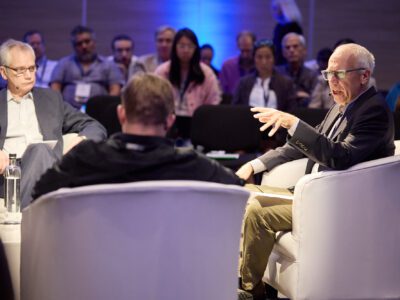In the Supreme Court’s Crosshairs: the Ninth Circuit’s Environmental Jurisprudence
All eyes will be on the U.S. Supreme Court this week, as the justices conclude their current Term and, among other things, issue their long-awaited decision(s) on the constitutionality of the newly-enacted federal healthcare law. But the Supreme Court also has some other, key decisions to make as to whether to take up four controversial environmental cases from the U.S. Court of Appeals for the Ninth Circuit.
In each of those cases, the Ninth Circuit reached a “pro-environmental” result, much to the consternation of the development community and local governments who were on the losing end of these decisions. Petitions for certiorari have been filed in all four cases, and the Supreme Court justices have signaled that they’re taking a hard look at each of the four petitions: they’ve formally requested the views of the U.S. Solicitor General as to whether Supreme Court review should be granted in all four cases. In three instances, the S.G. has responded, recommending that the Court deny review in each of the three cases.
The justices are scheduled to meet in conference later this week, when they are expected to vote on whether to grant or deny Supreme Court review in three of the four Ninth Circuit cases. The results of those votes will likely be announced by the Court on Monday, June 25th. Here’s a quick run-down on each of the four pending cert petitions:
- Pacific Merchant Shipping Assn. v. Goldstene, No. 10-1555, involves a shipping industry challenge to a California Air Resources Board regulation requiring marine vessels to use low-suphur fuels within 24 miles of the California coast. The Ninth Circuit rejected industry’s claims that the ARB regulation is preempted by the federal Submerged Lands Act and contravenes dormant Commerce Clause principles. The Solicitor General, while acknowledging that the challenged ARB regulation “raises important and difficult questions” about the extent of federal-state authority in this area, nonetheless advises the Supreme Court to deny certiorari.
- Two separate petitions, Decker v. Northwest Environmental Defense Center, No. 11-338, and Georgia-Pacific West, Inc. v. Northwest Environmental Defense Center, No. 11-347, have been filed in response to a widely-publicized 2011 decision of the Ninth Circuit. That decision concludes that channelized stormwater runoff from logging roads that eventually flows into streams and rivers requires an NPDES permit from federal regulators under the Clean Water Act. In so ruling, the Court of Appeals concluded that EPA’s so-called silviculture rule does not exempt such logging-related runoff from the Act’s permit requirements. (The logging industry petitions are supported by a small army of amici, including a coalition of states led by Oregon and Washington.) The Solicitor General has advised the Supreme Court that although he believes the Ninth Circuit mistakenly failed to defer to the EPA silviculture rule, the case nevertheless is not cert-worthy.
- Los Angeles County Flood Control Dist. v. Natural Resources Defense Council, No. 11-460, arises out of another controversial Ninth Circuit decision that interprets the Clean Water Act’s NPDES permit requirements expansively. In its 2011 opinion, the Court of Appeals ruled that Los Angeles County must obtain permits for urban runoff that collects in channelized river systems maintained and “improved” by county flood control agencies. The Solicitor General again damns the Ninth Circuit decision with faint praise: he states that although the Court of Appeals misstated the nature of the County’s stormwater system in its opinion, “any such factual mistake…does not warrant this Court’s review.”
- The fourth Ninth Circuit case also emanates from Los Angeles: American Trucking Assn. v. City of Los Angeles, No. 11-798, involves the trucking industry’s constitutional challenge to the city’s “Clean Truck Program,” which includes a progressive ban on older, higher-polluting trucks on Port of Los Angeles property. The Ninth Circuit rejected industry arguments that the program is preempted by federal law, and the trucking industry has petitioned for certiorari. While the Supreme Court has again invited the views of the Solicitor General as to whether certiorari should be granted, the S.G. has not yet submitted his recommendation in the American Trucking Association case. Accordingly, that case is not on this week’s Conference list, and it’s therefore unlikely that the justices will announce on Monday whether it will grant certiorari.
The fact that the Solicitor General has recommended against Supreme Court review in the first three of these cases is certainly a positive development for those who wish to preserve the Ninth Circuit decisions in each case. But the S.G.’s views are not dispositive: in recent years, the justices have disregarded the S.G.’s recommendations to deny review approximately 20% of the time.
And then there’s the fact that there exists longstanding ideological dissonance between the Ninth Circuit and Supreme Court when it comes to environmental law and litigation. In the last two decades, the justices have granted review in a large number of environmental law decisions from the Ninth Circuit–just about as many as from all other federal circuits combined. And, over the past 10 years, the Supreme Court has reversed almost every environmental opinion that the justices have agreed to review from the Ninth Circuit.
In sum, much of the regulated community, state and local governments, environmental organizations and federal environmental officials will be anxiously awaiting release of the Supreme Court’s “order list” on these pending cert petitions this coming Monday.






4 Replies to “In the Supreme Court’s Crosshairs: the Ninth Circuit’s Environmental Jurisprudence”
Comments are closed.